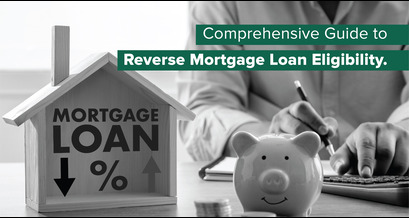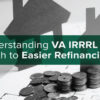As the golden years of retirement approach, many American seniors find themselves seeking innovative financial solutions to supplement their income and maintain their quality of life. One such option that has gained significant traction is the reverse mortgage – a unique loan product that allows homeowners to access the equity in their homes without the burden of monthly payments.
In this comprehensive guide, we’ll delve into the intricacies of reverse mortgages, exploring the eligibility requirements, the benefits and potential drawbacks, and the step-by-step process of obtaining one. Whether you’re a homeowner nearing retirement or simply curious about this financial tool, this blog post aims to provide you with the knowledge and insights you need to make an informed decision.
Understanding Reverse Mortgages: The Basics.
A reverse mortgage is a loan that enables homeowners aged 62 and above to convert a portion of their home’s equity into cash. Unlike a traditional mortgage, where you make monthly payments to the lender, a reverse mortgage allows you to receive payments from the lender, either in a lump sum, a line of credit, or a series of monthly installments.
The most common type of reverse mortgage is the Home Equity Conversion Mortgage (HECM), which is insured by the Federal Housing Administration (FHA). This type of reverse mortgage is designed to cater to the financial needs of senior homeowners, providing them with a way to access their home’s equity without the obligation of making monthly mortgage payments.
Eligibility Requirements for Reverse Mortgages.
To qualify for a reverse mortgage, there are several key requirements that homeowners must meet:
Age Requirement: At least one of the borrowers must be 62 years of age or older. If there are multiple borrowers, they must all meet the age requirement.
Primary Residence: The home must be the borrower’s primary residence, meaning they must live in the property for the majority of the year.
Home Equity: The homeowner must have a significant amount of equity built up in their property, typically at least 50% of the home’s value.
Property Type: The property must be a single-family home, a condominium, a townhouse, or a manufactured home that meets specific FHA requirements. Cooperative housing and multi-unit properties with more than four units are generally not eligible.
Financial Assessment: Borrowers must undergo a financial assessment to ensure they can meet the ongoing financial obligations of the loan, such as property taxes, homeowner’s insurance, and home maintenance costs. Depending on the results, a portion of the loan proceeds may be set aside in a Life Expectancy Set-Aside (LESA) account to cover these expenses.
Counseling Requirement: Before obtaining a reverse mortgage, borrowers must complete a mandatory counseling session with a HUD-approved counselor. This ensures they fully understand the implications of the loan and any alternative options available.
By understanding these eligibility requirements, American seniors can determine if a reverse mortgage is a suitable financial solution for their unique circumstances.
Potential Benefits of Reverse Mortgages.
Reverse mortgages can offer several potential benefits for eligible homeowners:
Supplemental Income: The loan proceeds from a reverse mortgage can provide a much-needed financial boost for seniors, allowing them to supplement their retirement income and cover daily expenses.
Debt Repayment: Reverse mortgages can be used to pay off existing mortgage balances, freeing up monthly cash flow and eliminating the burden of mortgage payments.
Home Equity Access: Homeowners can access a portion of their home’s equity without having to sell the property or make monthly payments. This can be particularly beneficial for seniors who want to remain in their homes during retirement.
Flexible Disbursement Options: Reverse mortgage borrowers can choose to receive their loan proceeds in a lump sum, a line of credit, or a series of monthly payments, depending on their financial needs and preferences.
Non-Recourse Loan: If the loan balance exceeds the home’s value at the time of repayment, the borrower or their heirs are not responsible for the difference. The lender can only recover the value of the home, not any additional debt.
However, it’s important to note that reverse mortgages also come with potential drawbacks, such as upfront costs, ongoing fees, and the risk of losing the home if the borrower fails to meet the loan’s obligations. Careful consideration and thorough research are essential before deciding if a reverse mortgage is the right choice.
The Reverse Mortgage Application Process.
If you’ve determined that a reverse mortgage aligns with your financial goals and you meet the eligibility requirements, the next step is to navigate the application process. Here’s a general overview of the steps involved:
Research and Compare Lenders: Shop around and compare reverse mortgage lenders to find the one that best suits your needs. Consider factors such as interest rates, fees, and customer service.
Attend Mandatory Counseling: As mentioned earlier, you’ll need to complete a counseling session with a HUD-approved counselor. This session will help you understand the reverse mortgage process, your rights and responsibilities, and any alternative options.
Complete the Application: Once you’ve selected a lender, you’ll need to fill out the reverse mortgage application and provide the necessary documentation, such as proof of age, homeownership, and financial information.
Home Appraisal and Title Search: The lender will order a professional appraisal of your home to determine its current market value, as well as a title search to ensure there are no outstanding liens or encumbrances on the property.
Loan Approval and Closing: If your application is approved, you’ll proceed to the closing process, where you’ll sign the necessary documents and receive your loan proceeds according to the disbursement option you’ve chosen.
Throughout the application process, it’s essential to work closely with your lender and the HUD-approved counselor to ensure you fully understand the terms and conditions of the reverse mortgage, as well as your rights and responsibilities as a borrower.
Conclusion.
Reverse mortgages can be a valuable financial tool for American seniors who are looking to supplement their retirement income, pay off existing debts, or access the equity in their homes. By understanding the eligibility requirements, potential benefits, and the application process, you can make an informed decision about whether a reverse mortgage is the right choice for your unique financial situation.
Remember, it’s always advisable to consult with a financial advisor or a HUD-approved counselor to ensure you fully comprehend the implications of a reverse mortgage and explore all available options before making a decision. With the right guidance and careful consideration, a reverse mortgage can be a powerful solution to help you enjoy a more financially secure retirement.















